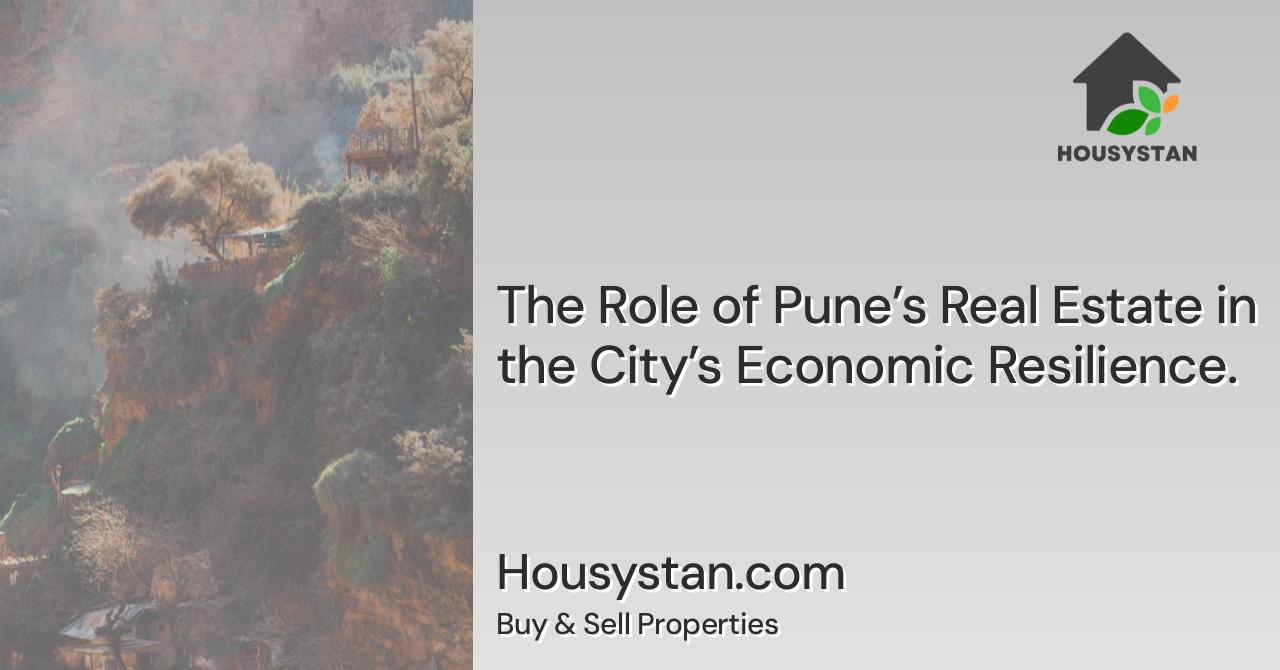The Role of Pune’s Real Estate in the City’s Economic Resilience
Read latest blogs and articles from Housystan

The Information mentioned here was last updated on:
29/1/2026Pune, renowned as Maharashtra’s cultural capital, has emerged as a vital hub for innovation, education, and business. Over the past decade, the real estate market in Pune has played a pivotal role in strengthening the city’s economic resilience. As both residential and commercial developments flourish, Pune continues to attract professionals, entrepreneurs, and families from across India, further fueling the region’s dynamic growth.
One of the key factors contributing to Pune’s economic stability is its thriving property sector. The city’s strategic location, proximity to Mumbai, and well-developed infrastructure have made it a preferred destination for multinational corporations, IT companies, and startups. This influx of businesses has created a surge in demand for office spaces, co-working hubs, and retail outlets, transforming Pune’s skyline and driving local employment opportunities.
Residential real estate in Pune remains robust due to the city’s expanding population and growing migrant community. Areas such as Hinjewadi, Kharadi, Baner, and Wakad have witnessed rapid urbanization, with reputable builders developing modern housing projects that cater to diverse budgets and lifestyles. These developments not only address the housing needs of Pune’s residents but also attract investors seeking high returns and long-term value appreciation.
- Verified Tenants/Buyers
- Unlimited Property Listing
- Zero subscription/charges fee
Pune’s real estate market is further supported by progressive government policies and sustainable urban planning initiatives. Infrastructure projects like the Pune Metro, improved road connectivity, and green spaces have enhanced the city’s liveability, making it an attractive option for both end-users and property investors. Additionally, the integration of smart city technologies has positioned Pune as a forward-thinking metropolis, ready to meet the demands of the future.
The resilience of Pune’s property sector was evident during recent economic challenges, as the market quickly adapted to shifting consumer preferences and digitalization trends. Developers embraced online sales platforms, virtual property tours, and flexible payment plans, ensuring continued momentum even during uncertain times. As a result, Pune’s real estate landscape remains a cornerstone of the city’s economic strength, supporting growth, stability, and prosperity for the entire region.